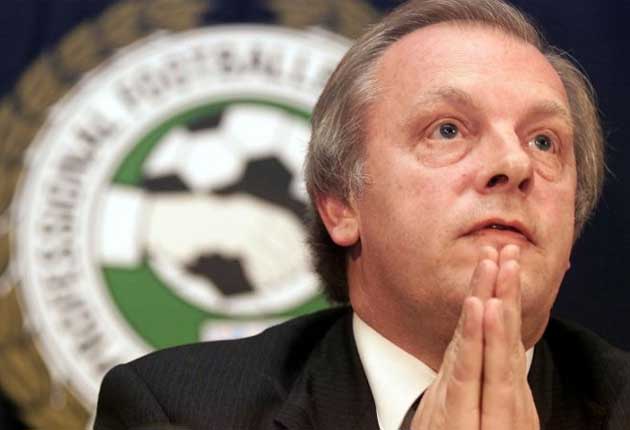Gordon Taylor urged to come clean about £725,000 payout

Your support helps us to tell the story
From reproductive rights to climate change to Big Tech, The Independent is on the ground when the story is developing. Whether it's investigating the financials of Elon Musk's pro-Trump PAC or producing our latest documentary, 'The A Word', which shines a light on the American women fighting for reproductive rights, we know how important it is to parse out the facts from the messaging.
At such a critical moment in US history, we need reporters on the ground. Your donation allows us to keep sending journalists to speak to both sides of the story.
The Independent is trusted by Americans across the entire political spectrum. And unlike many other quality news outlets, we choose not to lock Americans out of our reporting and analysis with paywalls. We believe quality journalism should be available to everyone, paid for by those who can afford it.
Your support makes all the difference.Gordon Taylor, chief executive of the Professional Footballers' Association, must break his silence over phone-hacking and explain why he was paid £725,000 in damages for being targeted by the News of the World, MPs said last night.
Tom Watson, the Labour MP who has done much to uncover the scandal, said Mr Taylor must appear before the judge-led inquiry into phone hacking and demanded that the News of the World publisher News International (NI) releases the football chief from a confidentiality agreement which has prevented him from discussing the matter. The circumstances of the payment have been the source of intense dispute following claims before MPs by James Murdoch last week that the settlement was in based on advice from "outside counsel" on the scale of damages likely to be awarded against the company if it took the case to court.
Two former senior NI executives – Colin Myler, the former editor of the News of the World, and Tom Crone, the paper's legal manager – have challenged Mr Murdoch's evidence and said he was "mistaken" in what he told the committee, arguing that he had been shown an email containing a transcript of a hacked message. It has since been claimed that Mr Taylor was originally offered a fraction of the final settlement –about £60,000 – but the figure rose as the company was made aware of evidence obtained by his lawyers.
Mr Watson, who briefly raised the matter of Mr Taylor's confidentiality requirement with Mr Murdoch during a Commons select committee hearing last week, said the PFA chief executive must be allowed to speak freely before Lord Justice Leveson's inquiry.
"I asked James Murdoch to release Gordon Taylor from his obligations to confidentiality and he ducked the question – the time is right for him to allow this matter to be cleared up. Just what is at the heart of the Gordon Taylor case that people don't want in the public domain?" His Labour colleague, Chris Bryant, said that following NI's decision to release its lawyers Harbottle & Lewis from client confidentiality requirements there was "no reason why News International couldn't release Gordon Taylor". He said the Leveson inquiry had the powers to subpoena Mr Taylor. "The whole Gordon Taylor pay-off is key because either James Murdoch or Colin Myler is telling the truth but either way it looks like a massive pay-off and we need to know what they were buying," he said. "It's difficult to see why Sienna Miller isn't worth £700,000 but Gordon Taylor is."
Although Ms Miller was the subject of articles based on hacked messages that appeared in the NOTW, Taylor received a much larger settlement than the £100,000 paid to the actress, even though no article about him was published as a result of hacking.
Mr Watson is concerned that the confidentiality clause which Mr Taylor agreed to prevented the wider football world, including PFA members, from learning earlier about the risk of hacking. There is growing evidence that the News of the World was engaged in a concerted effort to target the football world. David Beckham, Wayne Rooney, Gary Lineker and Ashley Cole are among the football figures concerned that they were hacked. Audiotape evidence disclosed by police to Mr Taylor's lawyers before his 2008 settlement included the disgraced private investigator Glenn Mulcaire briefing a journalist on how to hack voicemails and referring to a voicemail with "three messages from Tottenham".
Mr Watson also intends to challenge a decision by the Serious Fraud Office not to investigate NI's payments to Mr Taylor and others over hacking as a potential breach of company law. He questions the SFO's assertion that the money involved is insufficiently large to justify an inquiry. He argues that the hidden legal payments made by NI to various parties, including Mulcaire, merit investigation as a potential improper use of shareholders' money.
Mr Taylor did not return calls from The Independent.
Join our commenting forum
Join thought-provoking conversations, follow other Independent readers and see their replies
Comments